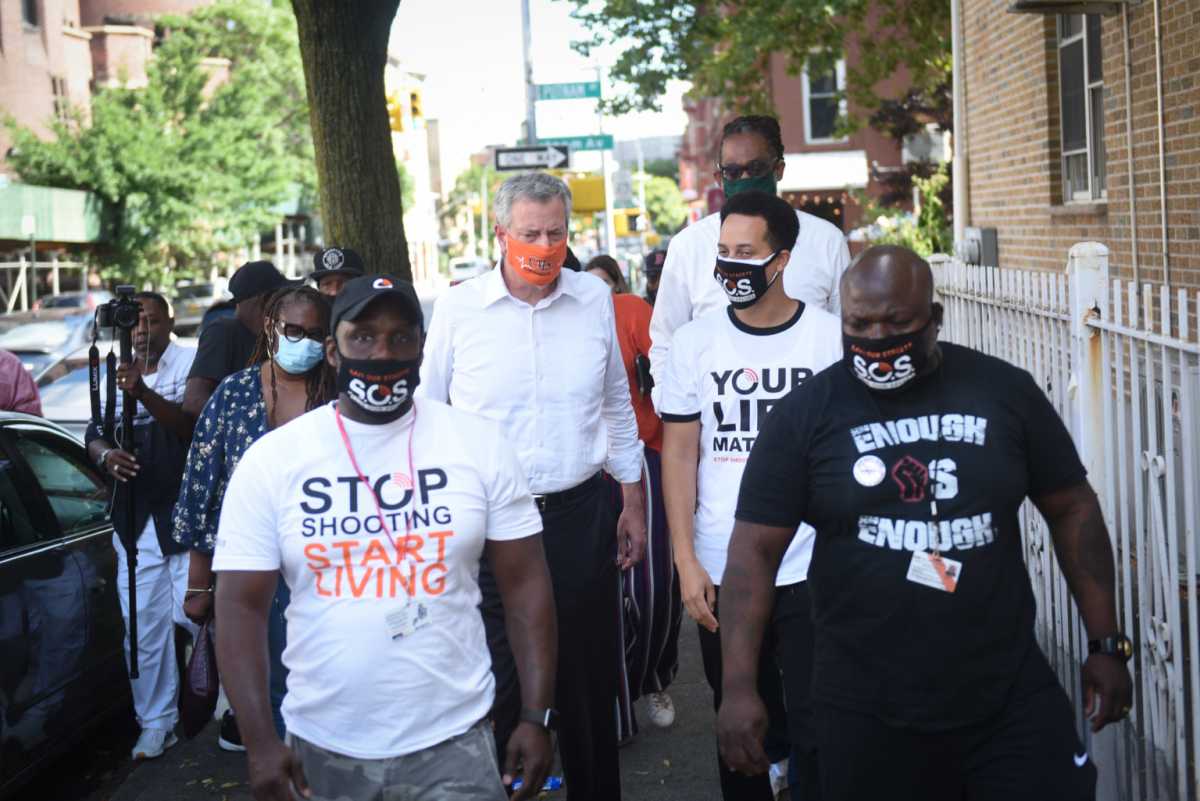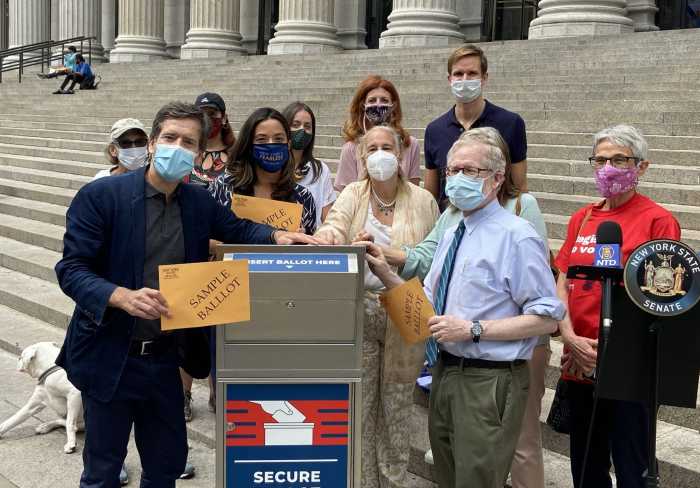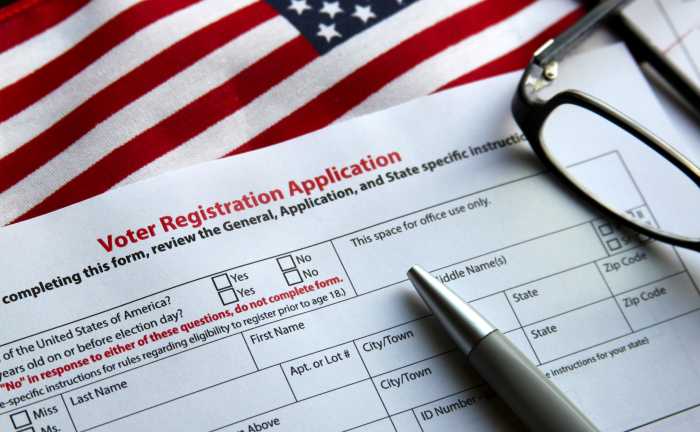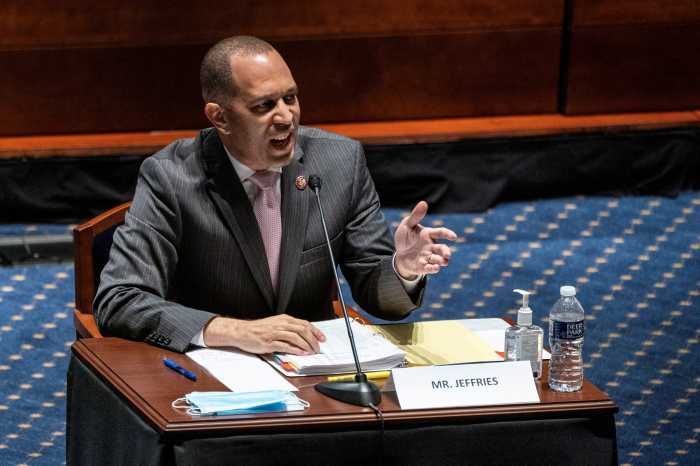Mayor Bill de Blasio rode another strong wave of police reforms on Tuesday by expanding Cure Violence programs to more precincts while other advocacy groups are reimagining the offices of public safety together.
De Blasio announced that five new sites will be outfitted with Cure Violence response programs by the summer in the 103rd Precinct in Queens, the 49th Precinct in the Bronx, and the 69th, 70th and 71st Precincts in Brooklyn.
The mayor said they are looking to double the Cure Violence workforce in at least 29 precincts by June 1. The hope is to stave off “anticipated” spikes in gun violence as seen last year.
Councilmembers I. Daneek Miller (Queens), Farah Louis (Brooklyn), and freshman Kevin Riley (Bronx) called in to de Blasio’s March 23 press conference at City Hall to show their support for their community violence interrupter programs.
“We need more resources in Black and Brown communities to combat the anticipated surge in gun violence and we need to save lives. Cure Violence providers are a crucial part in de-escalating the underlying tensions across the city,” said Louis. “These are the everyday heroes who continue to show up at Occupy Our Streets and keep our community safe. I look forward to the new implementation that will position us to better address the root causes of gang and gun violence.”
Miller said that the unique residential and downtown community in Queens had created a friction that could not be solved with more policing over the years.
“All of them will now have this extraordinary initiative, saving lives, stopping conflict, avoiding retaliation. Doing the fundamental community-based things that go far beyond our normal conception of public safety. This is the new way of doing public safety,” said de Blasio.
Inspired by last year’s tumultuous push for racial justice and police reforms, “a new way” of approaching neighborhood policing, public safety, and police accountability has been the mantra as of late.
In conjunction with six huge bills passed in 2020, the city took another big step when they finally released police records at the beginning of this month on March 4, after a lengthy legal battle with police unions.
The notable Citizens Union group released a report Tuesday that expounds upon their recommendations to increase transparency and accountability in law enforcement.
The report comes just before the April 1 deadline for local police to adopt a plan “that reinvents and modernizes police” with more community input, as mandated by Governor Andrew Cuomo.
Citizens Union proposed things like re-establishing a Deputy Mayor for Public Safety, allowing the Civilian Complaint Review Board (CCRB) to appeal the police commissioner’s decisions, making the appointment of police commissioner subject to advice and consent of the City Council, and ending qualified immunity.
“It is important that all functions of government be transparent and accountable to the public, including law enforcement,” said Betsy Gotbaum, executive director of Citizens Union. “These recommendations will strengthen oversight of the NYPD, make law enforcement more accountable to the public, and help strengthen the faith that New Yorkers have in the police officers that serve them.”
New York City’s last Deputy Mayor of Public Safety was Katherine N. Lapp, who served from 1990 to 1993 under former Mayor David N. Dinkins and as Criminal Justice Coordinator under former Mayor Rudy Giuliani from 1994 to 1997 before switching to the run the MTA in 2002.
De Blasio said that the current model, in which First Deputy Mayor Dean Fuleihan specifically focuses on police issues, has been very effective.
“Certainly you see that in the sheer extent of what’s happened in the last few months,” said de Blasio.
He added that soon the new mayor will probably have to work closely with a potentially new police commissioner and city council members as well to ensure transparency in the police department.
A spokesperson for Citizens Union confirmed that they do “intend on issuing a candidate preference in the mayoral race and for other races in the city this year.”



































